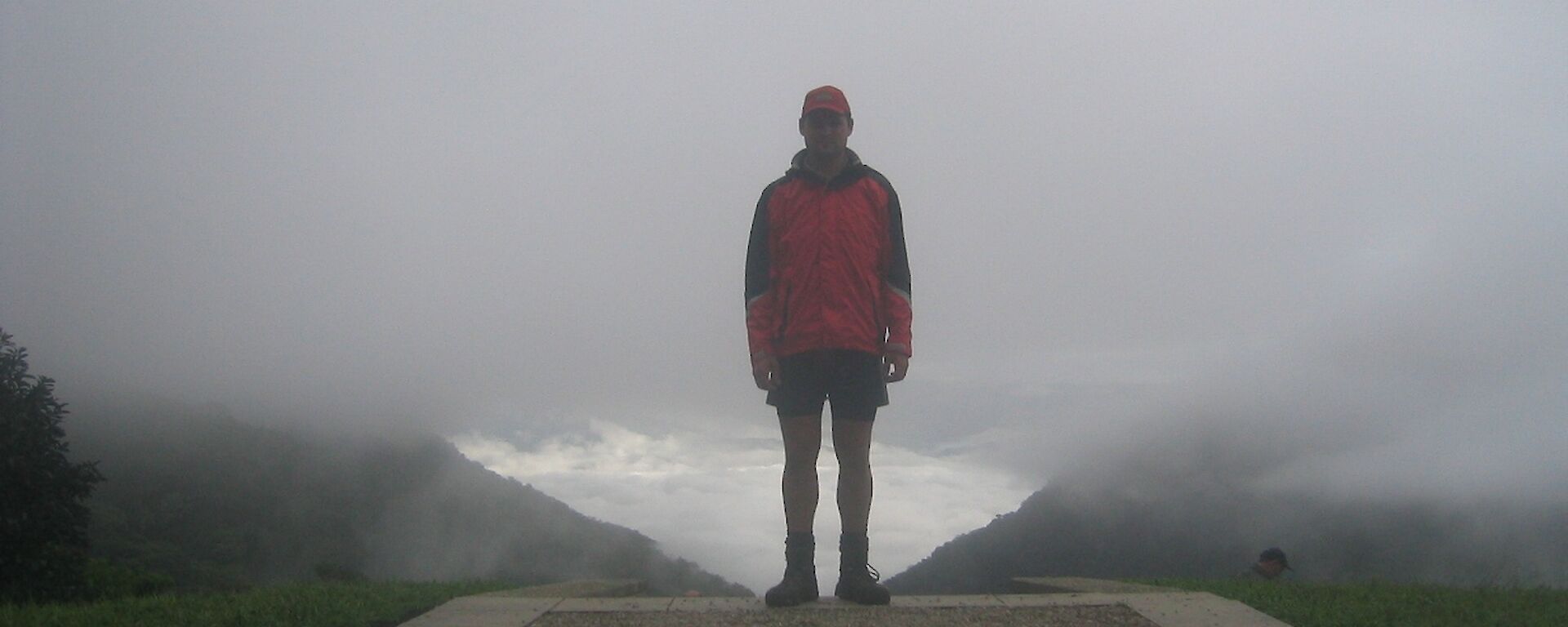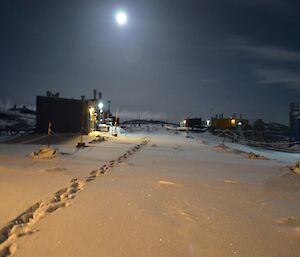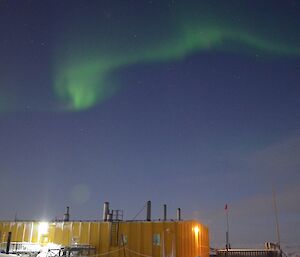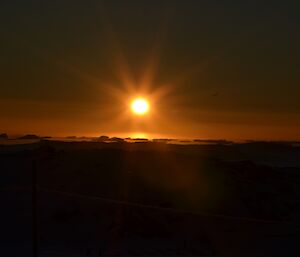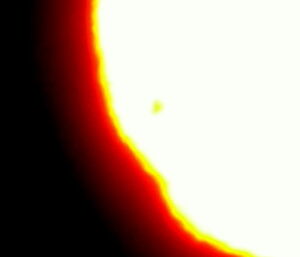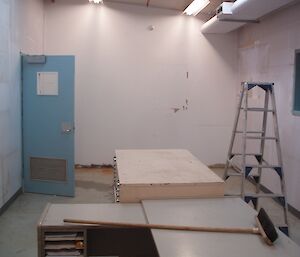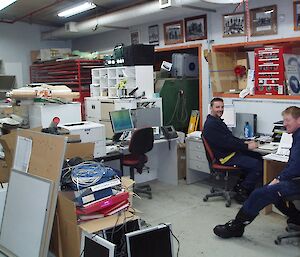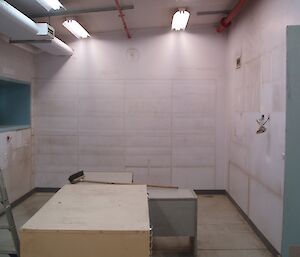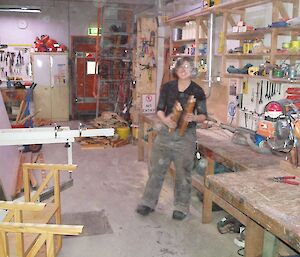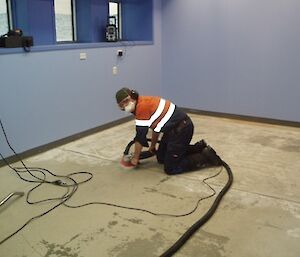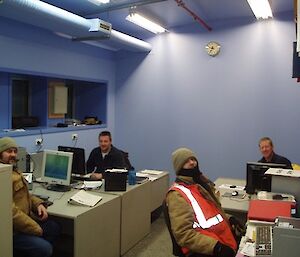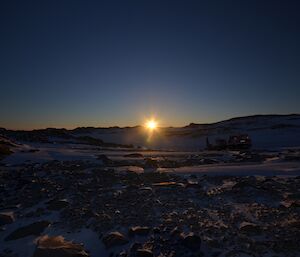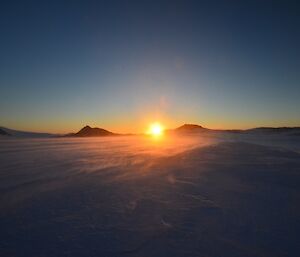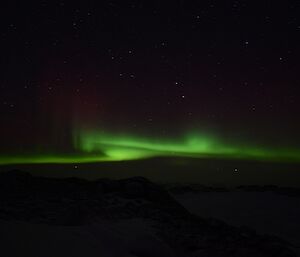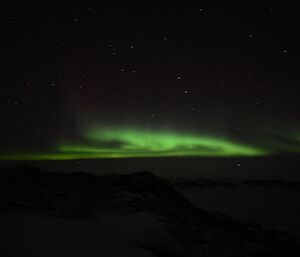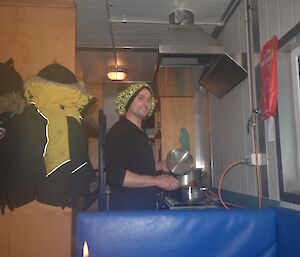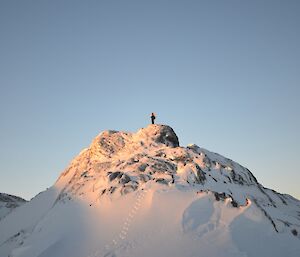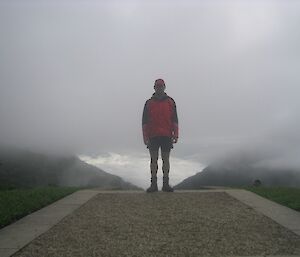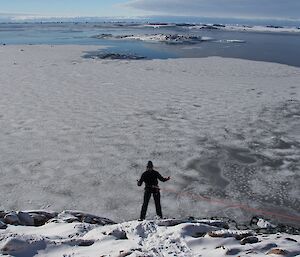We were very lucky at Casey this week. Recently there has been a great deal of hype about the transit of Venus across the sun, an event that occurs (in theory) once every 105 and 121 years. In reality, since the phenomenon was first identified, only six transits have been observed: 1639, 1761, 1769, 1874, 1882 and 2004. A transit refers to the planet (in this case Venus but it also happens for Mercury) moving in between the Earth and the sun so that the planet is observed as a shadow on the face of the sun. Transits are very important to astronomers and have greatly increased our understanding of the solar system, in particular the distance between the earth and the sun. The primary purpose of Captain Cook’s voyage of discovery (1769–1771) during which he landed in Australia was to observe the transit of Venus from Tahiti.
The seventh transit of Venus to be observed occurred yesterday, 6 June 2012. The next one will be in the year 2117. So like many people around Australia and the world, we at Casey were keen to get a look at it. Because we are approaching midwinter in Antarctica, most of the continent is now in perpetual darkness. The sun simply doesn’t rise at this time of year. At Casey we are the east Antarctic station furthest from the pole so even on midwinter day we still have a couple of hours of sun very, very low in the sky. This meant that we alone were able to observe the transit, if the weather was kind to us for the 90 minutes where both the sun was in the sky and Venus was in front of it from our perspective.
Fortunately for us, the day was perfect. As we walked to work from the Red Shed in the morning, the full moon was clear in the sky and an aurora was visible to the south. Slowly the sun rose, almost due north of us and with the sky remaining clear, Venus was visible as it made its way across the face of the sun.
To be alive at the time of such an event is very lucky. To be in the only place in Antarctica where it could be observed was amazing. But to actually have the weather cooperate as well was very special indeed.

